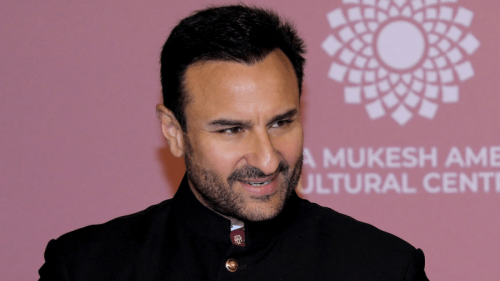LONDON: After the US encouraged the secession of Panama from Colombia in 1903, President Theodore Roosevelt suffered qualms of conscience. Having promised the new state US military protection to secure a good price for the construction and future ownership of the Panama Canal, Roosevelt asked his attorney general, Philander Knox, to articulate a principled defence for his actions. “Oh, Mr President, do not let so great an achievement suffer from any taint of legality.”
Almost a century later, one wonders whether President Bush has the same qualms and what the response would be around his cabinet table if he did. Two weeks ago in Venezuela, the democratically elected leader, Hugo Chavez, was ousted in a coup that lasted only 48 hours. Where a populist president once stood, the head of a private business lobby briefly became head of state. No conclusive evidence has yet emerged to suggest that America supported the botched overthrow. But it is clear that the US both knew it was going to happen and did nothing to stop it.
Throughout the ordeal the US, which has roamed the globe since Sept 11 declaring its determination to protect “democracy and civilization” at the barrel of a gun, suddenly lost its tongue. When the coup finally crumbled Chavez emerged not to warm support but a stern warning from Bush that he “hoped Chavez had learned his lesson”.
The lesson in question is clear if double-edged. On the one hand, US supports democracy when democracy supports US. But when there is no democracy, dictatorships will do just as well - and at times even better. The sticking point, in each instance, is not whether citizens of all nations have the right to choose their own leaders; but whether leaders, freely elected or not, of any nation have the right to choose a course which runs against whatever the US perceives its interests to be at a given moment.
The story of the Venezuelan coup is a shining example of just how much scope there is for a small country to make radical change in the interests of its people through democratic means. Conversely, those who eschew the popular will and embrace America receive very different treatment. US foreign policy not only tolerates this kind of behaviour; it positively depends on it. It is thanks to the monarchs and dictators of the Arab world that the widespread anger over recent events in the Middle East have not erupted into popular and violent disturbances.
Those who bandy about accusations of knee-jerk anti-Americanism might check their own reflexes rather than offering uncritical support to the US at this most critical time. “‘Our country is strong,’ we are told again and again,” wrote American intellectual Susan Sontag after September 11. “I for one don’t find this entirely consoling. Who doubts that America is strong? But that’s not all America has to be.”
Moreover, the US would not be able to conduct this agenda without the craven support of most of the rest of the developed world, Britain being key. The main concern is not so much that America’s current foreign policy is informed by self-interest - that is true of most countries - but that it is unrestrained by any strategy beyond that. In just over a year, the US has angered Europe with its steel tariffs, the Arab world over Israel and Afghanistan, much of South America with both alleged complicity in Venezuela and indifference to the plight of Argentina, and just about everybody with its rejection of the Kyoto environmental protocol.
White House attempts to wrap up this blunderbuss approach in moral imperatives would be laughable if the consequences were not so dire. Bush talks of bolstering “the dignity and value of every individual” - tell that to the people of Jenin. The US is no more interested in establishing democracy in Iraq than it is about preserving it in Venezuela. The crucial factors, in both cases, are that they are oil-rich, non-compliant states. Talk of democracy and human rights, in this context, is yet more moral camouflage for yet another immoral war. —Dawn/The Guardian News Service.














































Dear visitor, the comments section is undergoing an overhaul and will return soon.